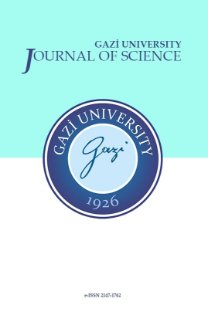Robust Reference Tracking and Load Rejection on Non-Linear System Using Controllers
Robust Reference Tracking and Load Rejection on Non-Linear System Using Controllers
Positive output elementary luo converter, Proportional integral controller, Linear quadratic regulator Integral absolute error, Integral square error,
___
- [1] Achiammal, B., Thillaikarasi, M., “Performance Analysis of PI controller for power electronic Converter usinng evolutionary algorithm”, International Journal of Advance Research in Science and Engineering, 7(2): 1132–1140, (2018).
- [2] Luo, F., L., Ye, H., Rashid, M., H., “Multiple-quadrant Luo-converters”, IEE Proceedings-Electric Power Applications, 149(1): 9–18, (2002).
- [3] Luo, F., L., Ye, H., “Positive output cascade boost converters”, IEE Proceedings- Electric Power Applications, 151: 590–606, (2004).
- [4] Muhammed Abuljaleel Ibrahim., “Performance evaluation of PI controller for positive output Luo converter”, International Journal Power Electronics and Drive System, 11: 1816-1825, (2020).
- [5] Nouri, T., Hosseini, S., H., Babaei, E., Ebrahimi, J., “A non-isolated three- phase high step-up DC–DC converter suitable for renewable energy systems”, Electric Power Systems Research, 140: 209–224, (2016).
- [6] Kaouane, M., Boukhelifa, A., Cheriti, A., “Regulated output voltage double switch Buck-Boost converter for photovoltaic energy application”, International Journal of Hydrogen Energy, 41(45): 20847–20857, (2016).
- [7] Ramash Kumar, K., Jeevananthan, S., “PI control for positive output elementary super lift luo converter”, World Academy of Science, Engineering and Technology, 39(3): 732–737, (2009).
- [8] Rebeiro, R., S., Uddin, M., N., “Performance analysis of an FLC-based online adaptation of both hysteresis and PI controllers for IPMSM drive”, IEEE Transactions on Industry Applications, 48(1): 12–19, (2011).
- [9] Singh, S., Sharma, D., K., Kishore, K., Botre, B., A., Akbar, S., A., “Modeling, Simulation, and Implementation of Fast Settling Switched PI Controller for MOX Integrated Pt Micro heater”, IEEE Sensors Journal, 18(20): 8549–8557, (2018).
- [10] Renwal, D., Kumar, M., “Hybrid PI-fuzzy logic controller based DC-DC converter”, Proceedings of the 2015 International Conference on Green Computing and Internet of Things, ICGCIoT 2015, 1: 753–757, (2016).
- [11] Chincholkar, S., H., Chan, C., Y., “Comparative study of current-mode controllers for the positive output elementary Luo converter via state-space and frequency response approaches”, IET Power Electronics, 8(7): 1137–1145, (2015).
- [12] Jazi, H., N., Goudarzian, A., Pourbagher, R., Derakhshandeh, S., Y., “PI and PWM Sliding Mode Control of POESLL Converter”, IEEE Transactions on Aerospace and Electronic Systems, 53(5): 2167–2177, (2017).
- [13] Mahdavi, M., Shahriari-Kahkeshi, M. and Abjadi, N. R., “An Adaptive Estimator-Based Sliding Mode Control Scheme for Uncertain POESLL Converter”, IEEE Transactions on Aerospace and Electronic Systems, 55(6), 3551–3560, (2019).
- [14] Usharani, V., Agasthiya, R., “Enhanced MPPT Technique For DC-DC Luo Converter Using Model Predictive Control For Photovoltaic Systems”, International Journal of Engineering Research and Development, 11(01), 2278–67, (2015).
- [15] Wang, B., Kanamarlapudi, V., R., K., Xian, L., Peng, X., Tan, K., T., So, P., L., “Model Predictive Voltage Control for Single-Inductor Multiple-Output DC- DC Converter with Reduced Cross Regulation”, IEEE Transactions on Industrial Electronics, 63(7): 4187–4197, (2016).
- [16] Montagner, V., F., and Fabricio, H., D., “A Robust LQR Applied To A Boost Converter With Response Optimized Using A Genetic Algorithm”, XVIII Brazilian Congress of Automatics, 2297–2302, (2010).
- [17] Abdullah, M., A., Tan, C., W., and Yatim, A., H., “A simulation comparison of PI and Linear Quadratic Regulator controllers in DC-DC converter”, IEEE Conference on Energy Conversion, 1: 37–41, (2015).
- [18] Mohammed Ahsan, A., d., M., Federico, M., “Modelling and Simulation of PI-controllers Limiters for the Dynamic Analysis of VSC-based Devices”, IEEE Transactions on Power Systems, 8950(c): 1–9, (2019).
- [19] Luo, F.L., and Ye, H., “Advanced DC / DC Converters”, 3rd Edition, CRC Press, Boca Raton, USA, (2004).
- [20] Mohan, N., Underland, T., Robbins, W., “Power Electronics - Converters, Applications and Design”, 2nd Edition, John Wiley and Sons Inc, USA, (2003).
- [21] Lindiya, A., Palani, S., Iyyappan, M.,“Performance comparison of various controllers for DC-DC synchronous buck converter”, Procedia Engineering, 38: 2679– 2693, (2012).
- [22] Guo, L., Hung, J., Y., Nelms, R., M., “Comparative evaluation of sliding mode fuzzy controller and PID controller for a boost converter”, Electric Power Systems Research, 81(1): 99–106, (2011).
- [23] Paraskevopoulos, P., N., “Modern control engineering”, 1st Edition, CRC Press, (2001).
- [24] Ogata, K., “Modern control engineering”, 5th Edition, Prentice Hall, (2017).
- Yayın Aralığı: 4
- Başlangıç: 1988
- Yayıncı: Gazi Üniversitesi, Fen Bilimleri Enstitüsü
Joseph EMEGHA, Bolutife OLOFİNJANA, Kingsley UKHUREBOR, Uyiosa AİGBE, Samuel AZİ, Marcus ELERUJA
Mahya GHOUCHANİ, Mehdi MOKABERİAN
Decision Making in Evaluation and Selection of Launch Site with The Best and Worst Method
Mehmet Mücahit ARSLAN, Gökay BAYRAK
DFT Analysis of Mechanical and Dynamic Properties of CuBe
İlknur KARS DURUKAN, Yasemin ÇİFTCİ
A Comparative Analysis of the Ranking Functions for the IVIFVs and A New Score Function
Single Solitary Wave and Wave Generation Solutions of the Regularised Long Wave (RLW) Equation
